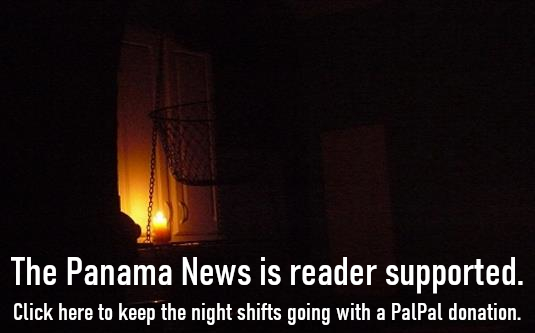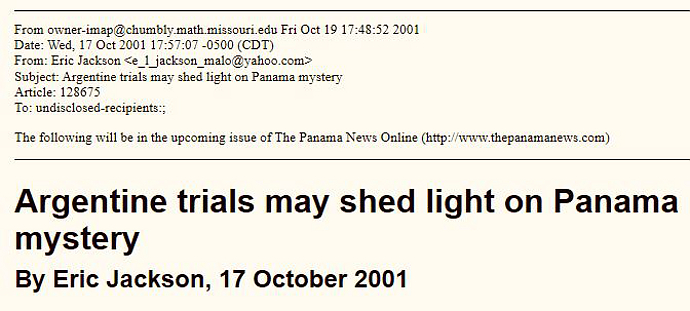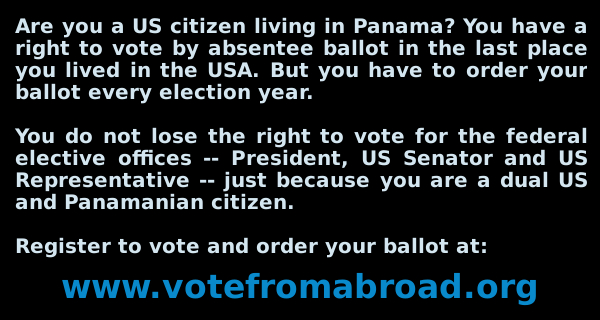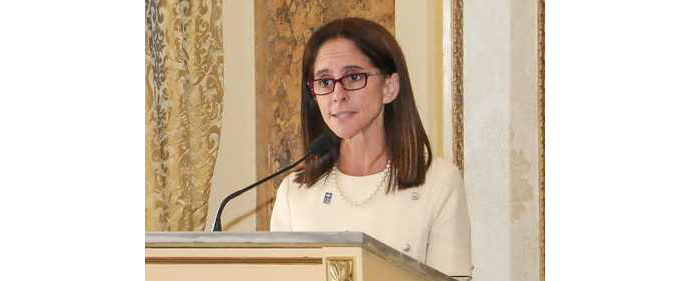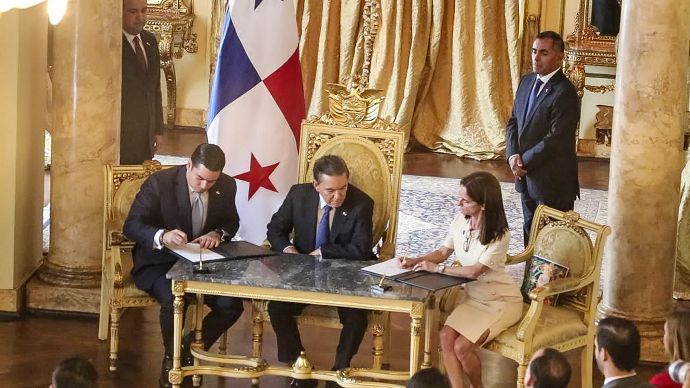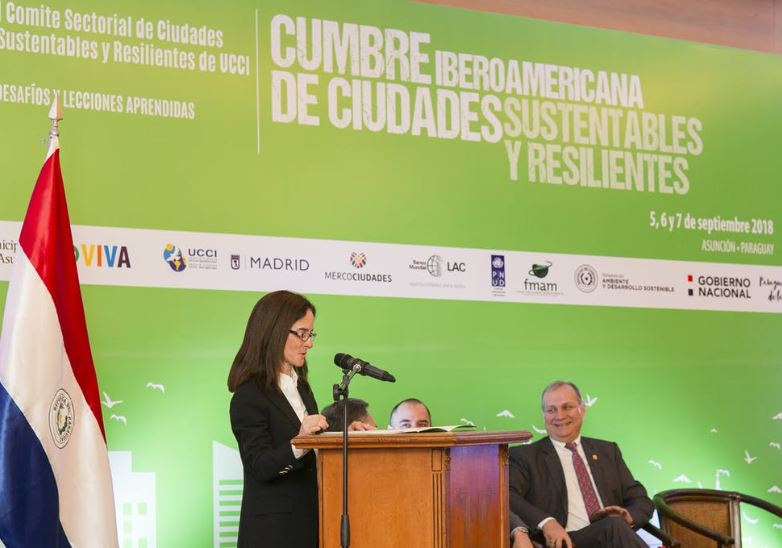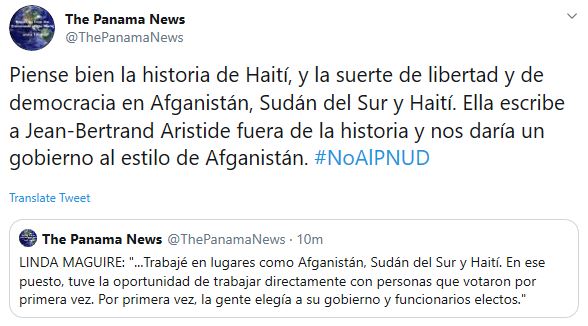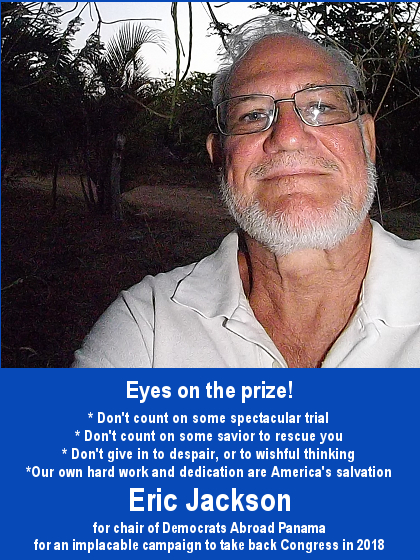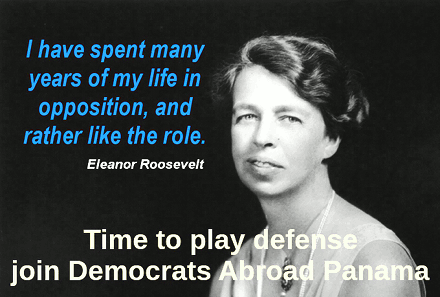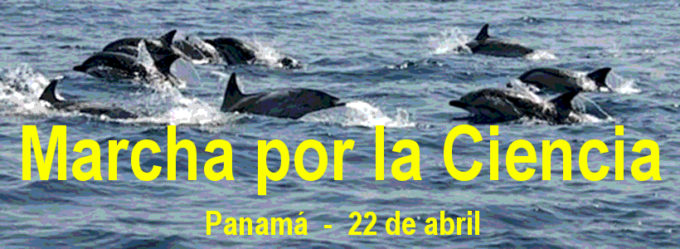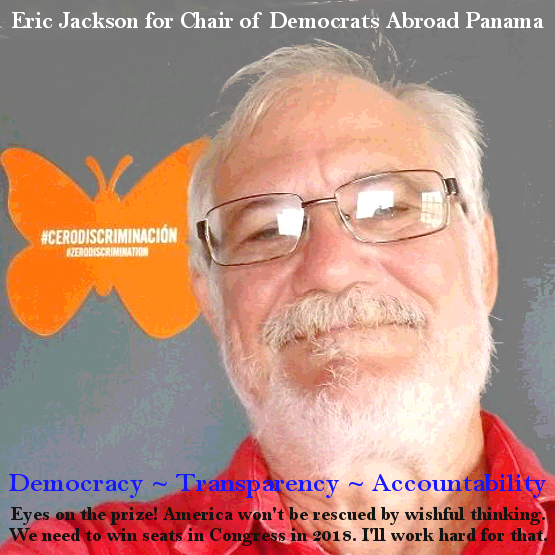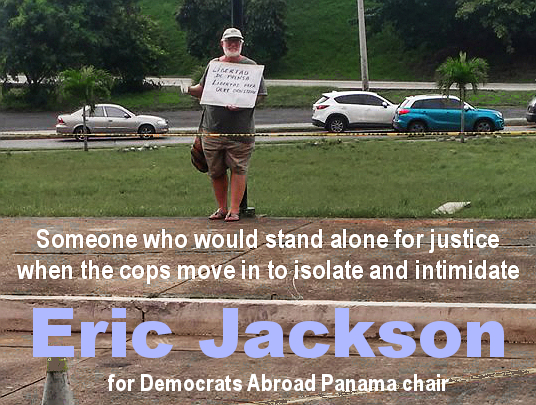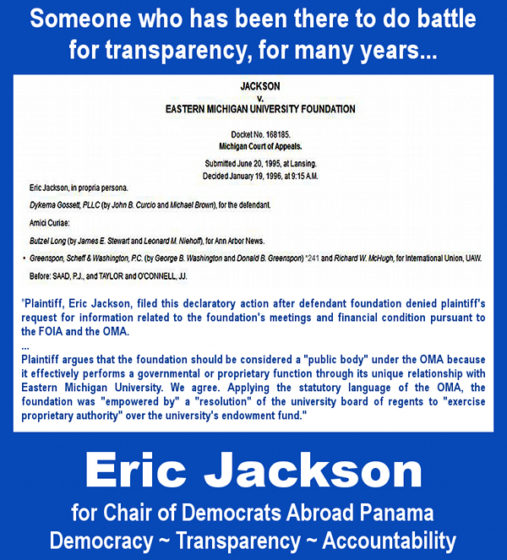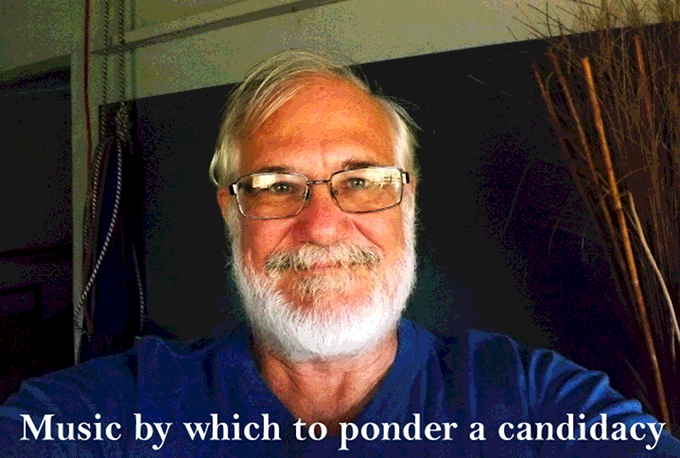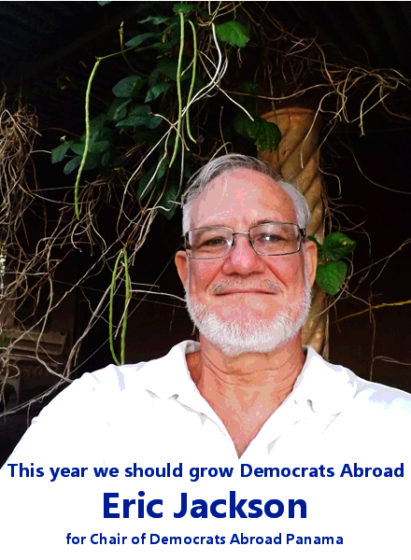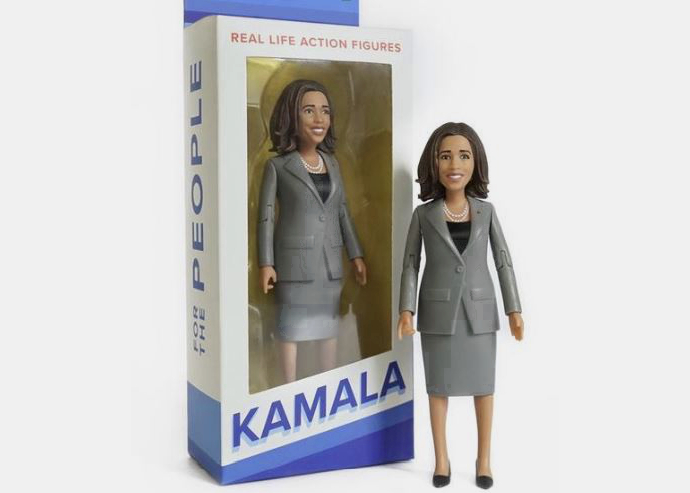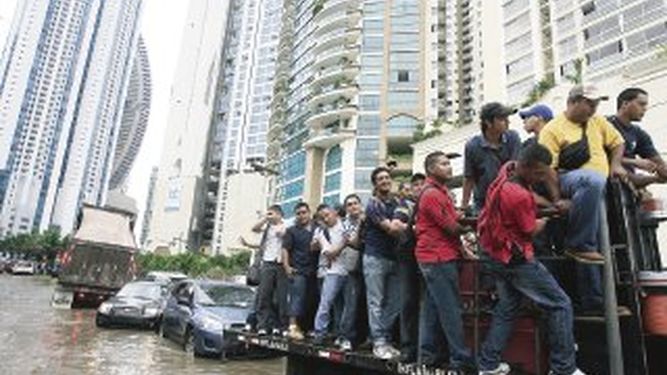It wasn’t as if nobody was aware of what the AUC did. This is a scene from the aftermath of one of the paramilitary’s massacres some five years earlier, in which 30 people were killed.
The orphan arms
by Michelle Lescure and Eric Jackson
The biggest illegal arms shipment ever known to have been introduced into Colombia arrived in Turbo, a port on the Gulf of Uraba on Colombia’s Atlantic coast, last November. The weapons, whose quantities are in dispute but by all accounts are enough to equip a major paramilitary offensive, were unloaded into trucks at the port, which has been controlled for several years by the right-wing United Colombian Self-Defense (AUC) militia, then disappeared inland. The belated Colombian investigation has sparked a many-headed international scandal.
The weapons, reported to include thousands of assault rifles, millions of bullets and other paraphernalia of death and destruction, were transported in the Otterloo, a Dutch ship which has since changed to the Panamanian flag and is now at the port of Cristobal, at the northern entrance to the Panama Canal, undergoing repairs. Its crew has been laid off and dispersed, its captain isn’t talking, and police and prosecutors in four nations are trying to pick up the trail of odd transactions by which the weapons got into officially unidentified Colombian hands.
However, the identity of the weapons’ recipients is no longer a mystery, if it ever was, to most Colombians. Boasting in the Colombian daily El Tiempo that “we have fooled the authorities of four countries,” on April 25 a member of the AUC high command acknowledged that his paramilitary force has the arms.
The AUC, whose founder Carlos Castaño is wanted for a number of grisly massacres and once boasted on Colombian national television that his group gets 70 percent of its income from the drug trade, is alleged by many human rights groups to be an informal auxiliary of the Colombian Army. As this story was uploaded, the AUC was engaged in an offensive around Jurado, a town close to the Panamanian border that has been held by leftist FARC guerrillas, provoking an exodus of refugees who have begun to arrive in the Panamanian town of Jaque.
The arms were bought from the Nicaraguan police, by Israeli arms merchants working out of Guatemala, who say they were contracted by the Panamanian government to buy them. The arms, whose destination Colombian authorities have not traced after their landing at Turbo, are now orphans of war — nobody is admitting present ownership, and most of the suspects along the paper trail deny any connection with them. However, there is a documentary record and a chain of financial transactions that investigators are perusing with varying degrees of enthusiasm. A source close to the investigation, however, says that the trail appears to lead directly back to the coffers of Plan Colombia.
“The police never arranged to acquire these arms,” Panamanian President Mireya Moscoso assured journalists.
The Israeli merchants, Oris Zoller and Uzi Kisslevich, who in the name of Panama bought some 7,000 AK-47 rifles and $5 million worth of 7.62 millimeter bullets that were diverted to Colombia, assure that the import license by which they acquired the weapons was authorized by Panama’s Minister of Government and Justice, Alex Vergara. “We had an understanding that the document pertained to the Panamanian police,” Zoller told the Guatemalan daily Siglo XXI for its April 24 edition.
The businessman pointed out that the arms were purchased from the Nicaraguan government itself and later sent to Panama, and that this happened around the latter part of last year. “We paid for these arms and later representatives of the National Police of Panama repaid us this amount,” Kisslevich said. GIR, SA, a company registered in Guatemala, served as the intermediary through which Panama bought the arms, whose last known location was in the AUC-dominated Cordoba and Uraba region of Colombia, from Nicaragua.
Zoller gave telephone interviews to newspapers in the region, in which he denied that documents were forged. He also faxed journalists copies of an import license that he says Panamanian officials signed, which noted that “in this way we acknowledge that the arms described above are and will be exclusively used by the National Police of Panama, to which end they will have as their final destination Panama City.” He added that this past November 2 the arms were delivered to alleged Panamanian suppliers, at which time the transaction was completed from his point of view.
One item about which none of those implicated could respond was why the paperwork was made out to the intermediary rather than that the ultimate user.
“The proprietors of GIR, SA asked the governments of Nicaragua and Panama to verify how the arms would end in Colombia,” the Panamanian daily La Prensa reported on April 23, adding that Kisslevich and Zoller insisted that the Panamanian National Police contracted with them to buy the lot of some 7,000 AK-47s that was later diverted to Colombia. Kisslevich told La Prensa that the deal was “transparent” and the documentation was “legal.” “We had the support of the Panamanian authorities for this operation,” Kisslevich told Siglo XXI.
Is Panama at war?
Panama has stayed out of Colombia’s endemic wars since independence in 1903. However, with the implementation of Plan Colombia border incidents have increased, with incursions by right wing paramilitaries, left wing guerrillas, gangs of bandits and refugees displaced by fighting or the fear of massacres. Panama has no army, but the government has created a special police force to guard the border, and is training the police for combat if that is necessary. Thus the National Police have purchased arms with Plan Colombia funds that the United States government has provided for countries that share borders with Colombia, according to Panamanian sources.
Aboard the Otterloo, the boxes of AK-47s bore inscriptions showing that they came from Russia, Germany and Hungary. The chief of Panama’s National Police, Carlos Baris, by the way, has said that his force buys arms from Hungary, because they offer better prices.
Aside from this particular affair, Panama’s role in Plan Colombia is open to question.
The US Southern Command uses civilian contractors from Evergreen Air of Alaska to run military supplies and personnel into the Colombian war zone out of Panama City’s Tocumen Airport. The Moscoso administration, which says that Panama will have nothing to do with Plan Colombia, maintains that these operations don’t count because they are not carried out by uniformed American military personnel.
Panama has also recently signed an addendum to an old anti-drug pact with the United States, which permits US military personnel to carry out certain “anti-drug” missions in Panamanian territory. Successive American administrations have characterized virtually all military assistance to Colombia as “anti-drug,” arguing that the leftist FARC guerrillas are “narco-terrorists.” In the face of some criticism that the agreement infringes Panamanian sovereignty, both the Moscoso and Bush administrations have argued that it merely strengthens joint law enforcement cooperation in efforts to suppress a problem that both countries have in common.
The Mystery Documents
The Nicaraguan daily, La Prensa, published the declarations of its country’s police spokesman, Marlon Montano, on April 25: “The police were authorized by the government of Nicaragua to sign the “Contract of Exchange of Arms and Ammunition” with GIR, SA, in its role as the intermediary of the Panamanian police.”
Montano added that the transaction was authorized according to the legal procedures of Nicaragua, by the nation’s Comptroller General’s Office and Ministry of Treasury and Public Credit. He also said that the arms were delivered by police chiefs and under strict vigilance at the port of El Rama, from whence they sailed off in the Otterloo.
In Panama on April 23, La Critica Libre reported that “The operation begain in February of 2000 and finished this past November 10, when the Dutch ship Otterloo unloaded the arms in Turbo, Colombia. According to investigations, the ship is the property of Trafalgar Marine International.” The Panamanian corporation’s president is Julio Ceesar Matute Oliva. Its resident agent, attorney Gustavo Leonardo Padilla Martmnez, told the daily that he didn’t know of any illegality.
The Panamanian government, however, says that the signatures of General Services director Rolando Taboada, Purchasing chief Reinero Castillo, Government and Justice Ministry official Alex Vergara and the Comptroller’s Office’s financial control chief Fredison Carvajal were all forged. It has admitted that the documents were on official Panamanian government forms, but maintains that the signatures were falsified. However, none of these individuals have personally admitted or denied their involvement in the arms transfers, as they say they have been forbidden by the government to give statements to the press.
Panama’s Attorney General, Josi Antonio Sossa, said that he’s waiting for reports from Panamanian and foreign law enforcement agencies to establish whether a crime has been committed within Panamanian territory, and that all depends on how Nicaraguan, Guatemalan and Colombian authorities respond. He notes that he’s trying to find out how documents may have been falsified and which businesses may be involved in the alleged purchase and resale of the arsenal, which he said was transported in three different shipments. (Panama had reportedly bought arms in three countries during the Moscoso administration — Argentina, Hungary and Nicaragua.)
According to Police Chief Baris, at no time did Panama buy the arms in question, nor did it serve as a transit country for arms trafficking, but it was simply a matter of false National Police documents being used to cover the operation. However, Zoller said that GIR, SA bought the AK-47s and ammunition from the Nicaraguan Police in February of 2000 and sold them to Inmversiones Digal, a Panamanian business owned by Shimon Yalin Yelinek and Marco Shem.
The Panamanian National Security Council announced that the governments of Colombia, Nicaragua, Panama and the United States would conduct a joint investigation to clarify the discrepancies.
The Mystery Ship
Gustavo Padilla, the resident agent for Trafalgar SA, said that the company acquired the Otterloo about a year ago, and that it’s presently anchored at Cristobal. The crew is gone, save for a single caretaker who’s not allowed to leave the ship. The ship, in turn, is not allowed to leave the port.
El Tiempo, Colombia’s newspaper of record which broke this story, reported on April 23 that after navigating its way to the port of Turbo, the ship began to be unloaded at 11 p.m. by dozens of men.
The ship had sailed from the port of Veracruz, Mexico, two weeks before with 23 containers full of plastic balls. The Otterloo called at Bluefield, Nicaragua, then set off for Turbo with 14 containers, allegedly containing 10,000 AK-47s and 15 million bullets. If that’s true, then there would be 3,000 rifles more than the lot officially purchased from the Nicaraguan police to be accounted for.
The load passed through the official inspections at the port of Turbo and, two hours later, several trucks filled with balls, rifles and bullets set out on the highways of Antioquia and Cordoba. A month later, when other Colombian law enforcement officials heard about a huge arsenal having come into the country, it was much too late to do anything about it: the trucks had delivered their loads and disappeared without a trace.
The police created an investigating committee under their Intelligence Directorate (DiPol) to establish the origin and destination of what they believe to be the largest illegal weapons shipment ever to enter Colombian territory.
However, the investigators heard conflicting stories. For example, the Otterloo’s engine operator, Jesús Ernesto Yejzn Rodríguez, a Mexican national, said that the itinerary from Veracruz to Colombia didn’t include Nicaragua, and that the vessel only stopped there for repairs.
And then there were the documents indicating that 7,000 rifles were loaded onto the ship, and other accounts that 10,000 were unloaded from it.
It has caused a major stir in Panama, whose government is already rocked by multiple scandals. An editorial in the Panamanian daily El Universal stated:
Today we wake up to the news of arms that have entered Colombia, and the only official response is from the National Security Council, denying the grave accusations made in the Colombian media, and promising to conduct an investigation of the crime.
The National Security Council is the least qualified body to conduct this investigation, because the director of the National Police is a part of it. This is not only one more act of corruption, this attacks the spirit of neutrality that Panama has advocated, and puts all of our citizens at risk of being involved in an armed conflict that would repeat, for our country, the horrors of The Thousand Day War.
“Investigations”
The plot has thickened, with President Moscoso and Nicaragua’s President Bolaños first denying any wrongdoing on the parts of their governments, then promising a joint investigation to see if there was anything improper. The papers in several countries have been full of accusations and counter-accusations between the Panamanian and Nicaraguan police. And now the United States, which has the AUC on its list of terrorist organizations now, but which worked very closely with the paramilitary’s precursor to track down and kill the Medellin Cartel’s Pablo Escobar, says it will join the investigation.
Then, as we were uploading this issue, El Panama America reported, citing an unidentified source in Panama’s National Security Council, that Oris Zoller and Uzi Kisslevich, the arms merchants at the center of this affair, are linked to the Israeli Mossad intelligence service. This would make a certain amount of sense, given close historical ties between Israel and Guatemala, for example by Israel stepping in to supply the Guatemalan Army during the height of a 1980s scorched earth campaign in indigenous areas that was so atrocious that the US government cut off officially acknowledged military aid.
The United States never cut its military cooperation with Guatemala as much as was claimed, and in light of what incomplete information is now known about that episode in Central American history, new questions arise. Is there a behind-the-scenes American hand in this arms shipment to Colombia’s paramilitary? Is this all about the use of a series of Israeli, Guatemalan, Nicaraguan, Panamanian and official Colombian “cut-outs” to conceal Plan Colombia assistance to the AUC paramilitary?
Inquiries into these and other questions thus become problematic. The Panamanian and Nicaraguan governments are both severely tested by scandals about widespread corruption at the moment. Israel is very isolated on the world stage. The governments of Colombia and the United States find very little support in the rest of the hemisphere for Plan Colombia. The results of investigations by the authorities of any of these countries, or of all of them, no matter what the findings might be, are sure to leave a lot of people incredulous.
Contact us by email at fund4thepanamanews@gmail.com
To fend off hackers, organized trolls and other online vandalism, our website comments feature is switched off. Instead, come to our Facebook page to join in the discussion.
These links are interactive — click on the boxes


